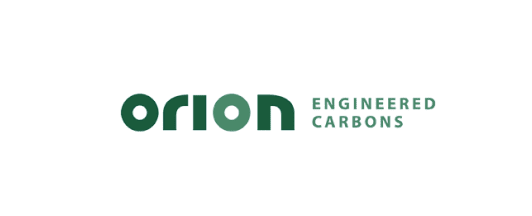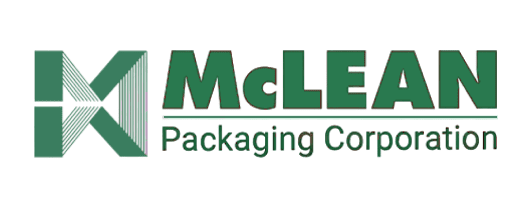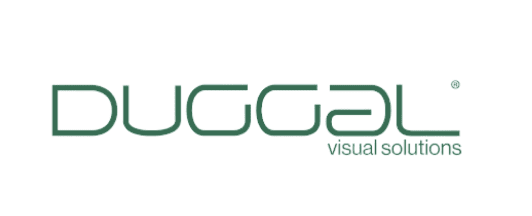Net zero and decarbonisation

Your dedication
Our guidance
Decarbonisation, demystified
Our services
Driving progress on your decarbonisation journey
Why measure your emissions?
Replies within 24 hours
On the side of transparent progress
Insights
Frequently asked questions
Net zero is a state in which an organisation’s greenhouse gas (GHG) emissions are balanced by an equivalent amount of emissions removed from the atmosphere. Net zero goes beyond the concept of carbon neutrality (emissions offset by reductions) as it requires deeper emissions cuts and less reliance on offsets. Net zero is increasingly becoming the standard for corporate and national climate commitments, in line with international agreements such as the Paris Agreement.
Some of the key steps required to achieve net zero include: getting buy-in from key stakeholders, measuring and defining a baseline, setting science-based targets, developing a comprehensive decarbonisation strategy, engaging suppliers to reduce Scope 3 emissions, monitoring and reporting on your progress, and tackling non-abatable emissions through high-quality carbon reduction & removal projects. Finally, it’s important to continually review and adapt your strategy based on the latest scientific research and emerging best practices and technologies. This approach ensures a structured path to net zero sustainability that focuses on significant emissions reductions.
Scope 3 emissions encompass all indirect greenhouse gas (GHG) emissions that occur in a company's value chain, both upstream and downstream. These emissions come from sources not owned or directly controlled by the reporting organisation and are grouped into 15 categories, such as purchased goods and services, transportation and distribution, business travel, employee commuting, investments, and the use and disposal of sold products.
Scope 3 emissions typically account for the largest proportion of a company’s total carbon footprint and are on average 11.4 times greater than operational emissions. In certain industries, Scope 3 emissions can account for up to 90% of an organisation’s GHG emissions. Given the scale of Scope 3 emissions, decarbonisation strategies that do not include their measurement and targeted reduction are considered incomplete. As a result, investors, customers and regulators are increasingly demanding transparency and action on Scope 3 emissions.
The Greenhouse Gas (GHG) Protocol is the primary international standard for GHG accounting and reporting and provides a comprehensive framework for organisations to measure and manage their Scope 1, 2 and 3 emissions. Complementary standards and frameworks such as the International Sustainability Standards Board (ISSB), the European Sustainability Reporting Standards (ESRS) and the Science Based Targets initiative (SBTi) further support and enhance GHG reporting and target-setting practices.
In response to the growing importance of comprehensive emissions reporting, regulatory bodies around the world are introducing more stringent requirements, particularly for Scope 3 emissions. Notable examples include the California Climate Corporate Data Accountability Act (SB 253) in the United States, the Corporate Sustainability Reporting Directive (CSRD) in the European Union, the Canadian Sustainability Disclosure Standards (CSDS) and TCFD-aligned reporting in Japan. These regulations underscore the global shift towards mandatory, standardised sustainability reporting and the need for organisations to align with established GHG accounting standards and frameworks.
A carbon credit represents one metric tonne of CO2e greenhouse gas emissions that has been reduced (compared to a baseline), avoided or removed through climate projects around the world. The most common types of carbon credits are technology-based and nature-based reductions and removals. Removals allow carbon to be neutralised and include methods such as reforestation and afforestation, biochar, carbon capture, utilisation and storage (CCUS), and other technologies, while reductions only allow carbon mitigation. These credits should be quantifiable, independently audited and based on transparent methodologies to ensure their credibility in mitigating climate change impacts. Credits should be verified to be of the highest quality and should only be used to complement a robust decarbonisation strategy and concrete action, compensating non-abatable emissions.
A MACC is a visual tool that ranks emissions reduction projects by their cost-effectiveness, showing the potential emissions abatement and associated cost per tonne of CO2e. It helps identify which decarbonisation options offer the greatest impact for the least cost.
MACC analysis prioritises decarbonisation investments by comparing the financial cost and emissions reduction potential of individual projects. This helps organisations allocate capital efficiently and develop strategic, data-driven decarbonisation roadmaps.
Projects typically include fuel switching, energy efficiency improvements, logistics optimisation, electrification, raw material substitution, and on-site renewable energy generation, among others.
Yes, MACC analysis can incorporate external carbon pricing forecasts, market regulations, and technology maturity to stress-test scenarios and align investments with financial and policy realities.
MACC results inform internal carbon prices by identifying the cost thresholds where carbon reduction becomes financially advantageous, helping to guide long-term investment and operational decisions.
An Internal Carbon Price is a monetary value that a company assigns to its greenhouse gas emissions to reflect their environmental cost. It is used internally to guide financial and strategic decisions, steering investments toward low-carbon activities.
Implementing an internal carbon price helps businesses anticipate regulatory trends, manage transition risks, and capture opportunities in low-carbon markets. It embeds climate considerations into everyday financial decisions and aligns corporate strategy with net-zero commitments.
Companies simulate a carbon cost—known as a shadow, implicit, or actual price—applied to emissions-producing activities or investment decisions. This makes the carbon impact visible in financial terms and influences project selection, procurement, and operations.
The price can be based on external market signals, such as EU ETS or national carbon tax rates, or derived internally from Marginal Abatement Cost Curve (MACC) results, science-based targets, or scenario modelling. The chosen level depends on ambition, industry context, and financial exposure.
Yes, developing an internal carbon pricing policy ensures consistency and transparency across business units. It formalises governance structures, price review mechanisms, application boundaries, and data tracking requirements.
By quantifying the cost of carbon, ICP frameworks promote investment in energy efficiency, renewable energy, and innovation. They help prioritise cost-effective abatement options, incentivise lower emissions, and strengthen long-term competitiveness.
To build an effective decarbonisation strategy, it is essential to integrate climate considerations into your business strategy, engage stakeholders, ensure regulatory agility, and track progress robustly with data. These steps help in managing risk and achieving meaningful carbon reduction through targeted actions. Our experts can support organisations in tailoring these pillars to your specific sector and challenges.
Comprehensive carbon footprint measurement involves collecting data on direct (Scope 1), indirect energy (Scope 2), and value chain emissions (Scope 3), which often represent the largest share. Combining activity and financial data helps ensure accuracy, but expert guidance is recommended for reliable carbon accounting and to align with international standards like the GHG Protocol.
Science Based Targets are crucial as they align your emissions reduction goals with the latest climate science and international agreements such as the Paris Agreement. These targets emphasise deep cuts in emissions before relying on offsets, ensuring credible progress towards net zero. Our consultants can help align your carbon management plans with these recognised frameworks.
A risk-based approach to decarbonisation helps identify, assess, and manage risks linked to transitioning to a low-carbon economy, improving decision-making and stakeholder engagement. This approach supports companies in overcoming obstacles and capitalising on opportunities while driving carbon reduction responsibly. Discuss with our experts how a tailored risk strategy can enhance your decarbonisation journey.
California’s SB 253, known as the Climate Corporate Data Accountability Act, requires all public and private companies with over $1 billion in annual revenue doing business in California to disclose their greenhouse gas emissions across Scopes 1, 2, and 3. Beginning in 2026, companies must report Scope 1 and 2 emissions, covering direct emissions and purchased energy, while Scope 3 reporting, which accounts for value-chain emissions, will be required from 2027. Disclosures must follow the Greenhouse Gas Protocol, undergo third-party assurance, and be submitted through a public digital platform managed by the California Air Resources Board (CARB). To comply, organisations need to assess emissions across operations and supply chains, establish reliable data systems, and engage suppliers early to ensure readiness. By introducing one of the most ambitious climate reporting laws to date, California is moving towards mandatory carbon accounting and setting a precedent for transparency in corporate climate action.
Nexio Projects is a sustainability consultancy based in the Netherlands, recognised by Verdantix as one of the world’s leading boutique ESG and sustainability strategy consultancies. With more than 1,000 projects completed across 20 countries and 25 sectors, from logistics and shipping to manufacturing and consumer goods, our ESG consultants bring clarity to complex decarbonisation journeys. As a trusted net zero and decarbonisation consultant, Nexio Projects offers tailored sustainability services including carbon management, science based target setting, and transition planning. Whether you need an environmental consultant to engage suppliers or an ESG advisory to shape a company wide net zero roadmap, Nexio Projects provides practical and impactful solutions for climate leadership.








































